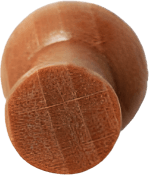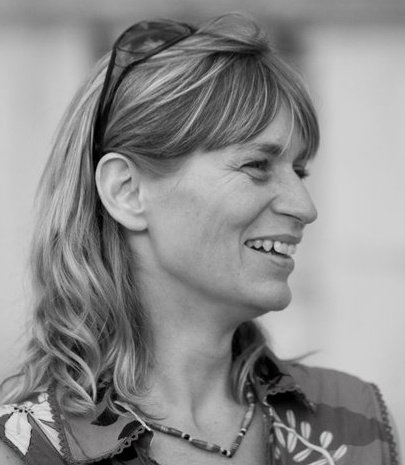An interview with the two-week training intensive, international guest artists Cariad Astles, visiting Spare Parts exclusively from the UK, in August 2017.

- Tell us a bit about your practice. These days much of my work is running puppetry training workshops, whether with theatre professionals, university students (studying puppetry or theatre, or in some cases, trainee doctors…); teachers (I just ran a training workshop in using puppets for teachers in China); or youth leaders (a group of youth trainers working on inter-religious dialogue in Tunisia). But I am also a practicing performer and director. I make work which explores intercultural dialogue, or approaches sensitive content. Puppets have this power. At the moment I am interested in exploring how puppetry can talk about death, and am also starting to build a project which is about the relationship between puppetry and poetry. I enjoy working with sensitive themes and using puppetry to experiment and push the boundaries. Puppets are sacred beings/objects for me; they have this power inherent in them and I believe this should be respected.
- What about the art-form of puppetry interests you most? Their incredible power to be both alive-and-dead; their potential to speak beyond the individual, for a collective, group or shared feeling; their ability to embody concepts as well as individuals.
- Who was your greatest mentor when you were starting out? Why? A man called Enzo Cozzi who ran a puppet theatre company called Travesura Theatre. I was taken on as a trainee. Enzo is Chilean and was then in exile from the Chilean dictatorship in London. He was and is one of the most brilliant, creative and intelligent people I know. From Enzo I learnt the power of story and of storytelling; and that puppetry is about love, more than pure technical skill.
- What one lesson or piece of advice sticks in your mind? There are so many…I will give a few…from Margareta Niculescu, the director of the puppetry school in France, that puppetry is an art form worthy of dignity, respect and hard work; from Eric Bass of Sandglass Theatre that the audience wants to see the world that the puppet lives in, not just the puppet itself; from John Wright, then director of the Little Angel Theatre that every gesture counts and has meaning, therefore there is no gesture that should be wasted and no movement that should be done unnecessarily, and from Chris Leith, the master puppeteer who died of MND two years ago, that puppetry is deep, soulful and spiritual.
- What does an average (work) day for you look like? It’s long! And so varied! It really depends. Usually I am up very early to prepare work (around 5/6 am) which may be a teaching or training session, or a talk or presentation. I am definitely more focused and awake first thing so I prefer to start the day early. If I am running a workshop, this will normally run for all morning or all day. Or a rehearsal or practice session with puppetry performers. I also do a lot of writing (both creative and academic) and try to make time each day for this. I am really lucky to have friends and colleagues all over the world and we are often in touch, and my children, even though they are pretty old children now, are always part of my day even if that is just a few messages. The amazing and wonderful thing about my life and working with puppets is that it is so varied. I remember one day a few years ago when in the morning, I was helping make puppet horses for the Cultural Olympiad with Matt Jackson and Forkbeard Fantasy, in the afternoon I was rehearsing a show to take to a festival in Poland and in the evening participated in a symposium about a cross-dressing Punch from the USA from around 100 years ago (I think). Then people ask me what I do or how I spend my day and I give that as an example of how varied, imaginative and interesting it is. Of course, there is lots of boring admin as well to do but I am really, really lucky to be able to do these things. Puppetry is a magical world.
- What do you work towards in your free time? I am really interested in tropical biology and am studying this. I also write poetry and children’s stories.
- What did you want to be when you grew up? An actress. But as a child I produced and sold at school a hand-drawn and written magazine which featured lots of weird and unusual creatures and people in funny stories and when I look back it was pretty puppet-like.
- Tell about a great performance experience you had recently. love the work of Kneehigh Theatre. They still work with what could loosely be termed total theatre. Their performance of Dead Dog in a Suitcase (and other love songs) which included puppetry by Sarah Wright, was fantastic: dramatic, exciting and theatrical. The story was good; the stage was a set of scaffolds which shifted to accommodate the shifts in the story; the performers looked like they wanted to be there; there was comedy, tragedy, theatre that took your breath away. Rough, energetic singing and performance. The puppetry was part of the whole thing, commenting on what was going on, as a kind of parallel world. It was great.
- What inspires you? Truth, simplicity, hard work, trust, love.
Spare Parts is offering a limited number of places for the opportunity to take part in the two-week exclusive training with Cariad, along with the company’s Associate Director Michael Barlow and performer/ director Rebecca Bradley.
For more information and how to apply click here.

